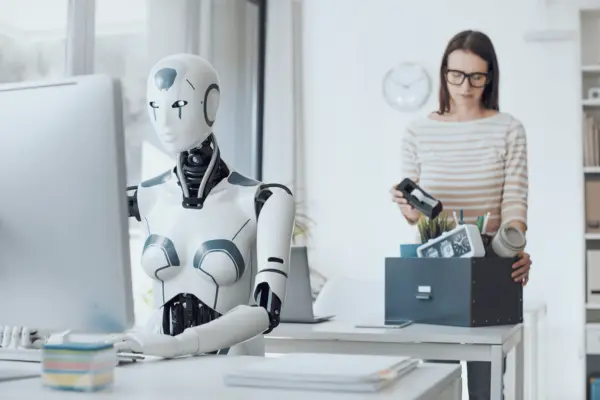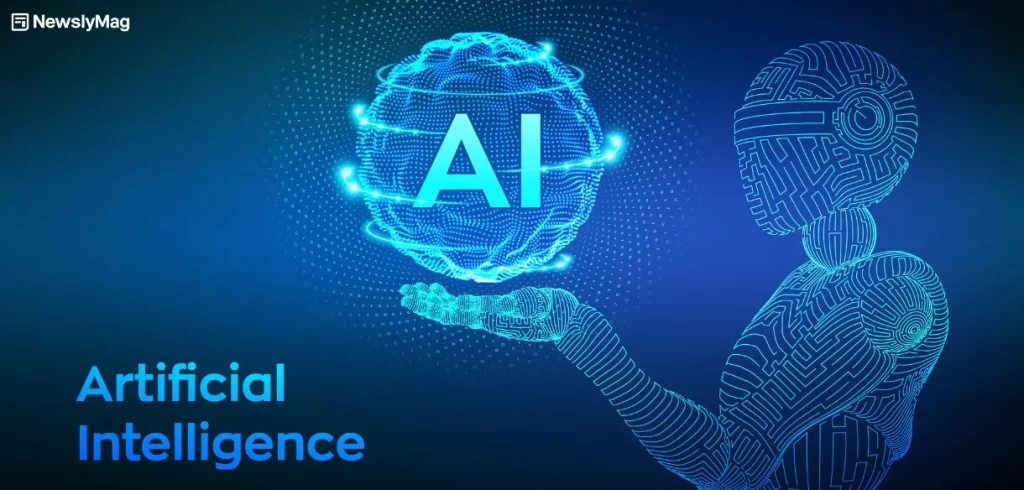Artificial Intelligence (AI) is no longer a distant concept; it’s actively transforming the American workforce. From automating routine tasks to creating entirely new job categories, AI’s influence is profound and multifaceted. This article delves into how AI is reshaping employment in the United States, examining both the opportunities and challenges it presents.
The Dual-Edged Sword: Job Displacement and Creation

AI’s impact on employment is twofold. While it automates certain tasks, leading to job displacement, it also generates new roles that require different skill sets. For instance, AI is automating routine tasks in sectors like data entry and customer service, potentially displacing workers in these areas. Conversely, it’s giving rise to professions such as AI ethics specialists, data scientists, and machine learning engineers, which demand advanced technical skills .
Industries Most Affected by AI

Certain sectors are undergoing profound transformations due to the adoption of AI (Forbes). In technology and IT, AI drives innovations in cloud computing, cybersecurity, and software development, reshaping how companies operate and compete. The healthcare industry is leveraging AI to enhance diagnostics, enable personalized medicine, and streamline administrative tasks, ultimately improving both efficiency and patient outcomes. In manufacturing, automation and robotics are optimizing production lines, reducing costs, and increasing precision. Meanwhile, the finance sector relies on AI algorithms for fraud detection, risk assessment, and algorithmic trading. Across these industries, AI is not only being adopted but is also redefining job roles, requiring workers to develop new skills and collaborate effectively with advanced technologies.
Also Read :-Heart Health Tips
The Rise of AI-Enhanced Roles

While AI may replace certain tasks, it also augments human capabilities, leading to the emergence of hybrid roles. For example, AI-assisted logistics operators and financial coaches utilizing smart tools are becoming increasingly prevalent. These positions often offer competitive salaries and require a blend of domain expertise and digital fluency.
The Importance of Reskilling and Education

To thrive in an AI-driven economy, continuous learning is essential. Educational institutions and employers are emphasizing reskilling programs to equip workers with the necessary skills. For instance, initiatives in Iowa are preparing students for the future workforce by integrating AI concepts into their curricula.
Challenges and Ethical Considerations
The integration of AI into the workplace presents several significant challenges that must be carefully managed. One major concern is job displacement, as roles involving repetitive or routine tasks are particularly vulnerable to automation (JPMorgan Chase). Additionally, AI systems can inadvertently perpetuate existing biases if not properly designed and monitored, resulting in unfair outcomes for employees or customers. Privacy is another critical issue, as AI-powered tools used to track and evaluate employee performance can infringe on individual rights. To navigate these challenges effectively, organizations must implement thoughtful policies and ethical guidelines, ensuring that AI technologies benefit all stakeholders fairly and responsibly.


